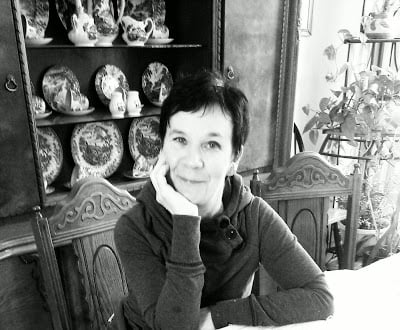 By
Misty from London, UK -
A touch of Narnia in Den Haag...,
CC BY 2.0, https://commons.wikimedia.org/w/index.php?curid=47911073
By
Misty from London, UK -
A touch of Narnia in Den Haag...,
CC BY 2.0, https://commons.wikimedia.org/w/index.php?curid=47911073
Aslan says that he is known by many names, in many lands and that they will have to discover him and find out his name in their own world.
My favorite book as a child is still my favorite series, The Narnia Chronicles by Catholic author, C.S. Lewis, excluding the Bible of course. It does seem ridiculous because I am an English Literature major who has read thousands of masterpieces, classics, novels, poems, essays, and articles.
What can I say? When I am asked, "What is your favorite book?" The Narnia Chronicles immediately pop into my mind. I smile and all else fades into the background.
I read the entire series again about ten years ago and I was delighted. C.S. Lewis manages to reveal profound Christian truths in an enchanting tale that captivates little ones.
This is not a heavy-handed, pedantic Victorian-style morality tale that pretends to be fiction. No, this is a creative masterpiece that invents a whole country with a history, geography, politics, languages, races of beings, animals and a time sequence completely different from our own.
The characters are ingenious but never cute. Even elves and talking animals are serious with deep, rounded personalities. It is not surprising that Tolkien and C.S. Lewis were good friends who discussed their creative endeavours with each other.
The most powerful and ingenious character is that of Aslan the Lion who is an archetypal figure representing Christ the Saviour in His Death and Resurrection. It is a masterful scene as the dark forces led by the Snow Queen, sheer off all his hair, tie him with ropes on a stone altar and kill Aslan. Then the stone altar cracks, thunder shakes the earth and darkness falls. In three days, though, Aslan rises in all his glory, sending the witch and her minions fleeing.
One of the sweetest, haunting moments is when the children cling to Aslan, not wanting to return to their own world. Aslan says that he is known by many names, in many lands and that they will have to discover him and find out his name in their own world. No mention of Jesus, just a teasing poke for the reader to discover God on his own.
There is a scene at the end of C.S. Lewis' The Chronicles of Narnia that has stayed with me for decades.
The enemies of Aslan, who is a Christ figure, have imprisoned the children, a few animals, Prince Caspian, as well as disgruntled dwarves in a shed that is dank and dark, filled with putrid straw, with stale water and rotten cabbages to eat. A war against the evil forces rages outside. Outwardly, it seems that all is lost, yet the children, Prince, and animals hold on to the belief that Aslan will come and save Narnia. Of course, the dwarves mock their ridiculous faith.
Suddenly Aslan appears, vanquishes the enemy and the back of the prison crumbles revealing a glorious sight. It is Narnia, but more resplendent, filled with a radiant light. Everything is more colourful, beautiful, fragrant. It is a resurrected Narnia. Heaven has come to earth. A table, covered with a white cloth and laden with delicacies, beckons them.
The children, Prince, an assortment of fauns, and animals feast with delight. The dwarves, hang back suspicious and mistrustful. When they finally venture a nibble of a delicacy they spit it out in disgust. All they taste is stale water and rotten cabbages. All they see is the dark, dank prison.
The dwarves cannot be coaxed out of their cynical, disillusioned existence. They believe that they are right and Aslan has brainwashed everyone else. The dwarves, blinded by pride, see themselves as realists and so they remain miserable, unable to join in the new life that Aslan offers them.
[Tweet "For a person who is free to live in the joy of the Spirit, nothing can take away their inner joy."]
When we choose to stay miserable, nothing, not riches, nor prestige or a change in circumstances, nothing will change that. Change comes from within. For a person who is free to live in the joy of the Spirit, nothing, not poverty, nor hunger nor prison, nothing can take away their inner joy.
Copyright 2016 Melanie Jean Juneau
About the Author

Melanie Jean Juneau
Melanie Jean Juneau is a mother of nine children who blogs at joy of nine9. Her writing is humorous and heart-warming; thoughtful and thought-provoking. Part of her call and her witness is to write the truth about children, family, marriage and the sacredness of life. Melanie is the administrator of ACWB, the Editor in Chief at CatholicLane, CatholicStand, Catholic365 , CAPC & author of Echoes of the Divine.


.png?width=1806&height=731&name=CatholicMom_hcfm_logo1_pos_871c_2728c%20(002).png)
Comments